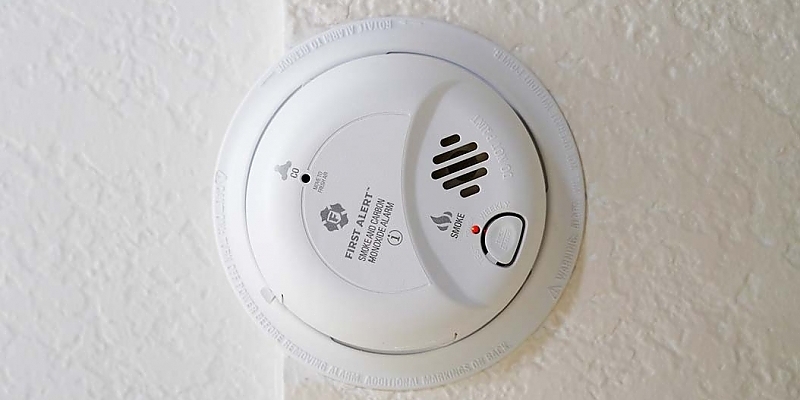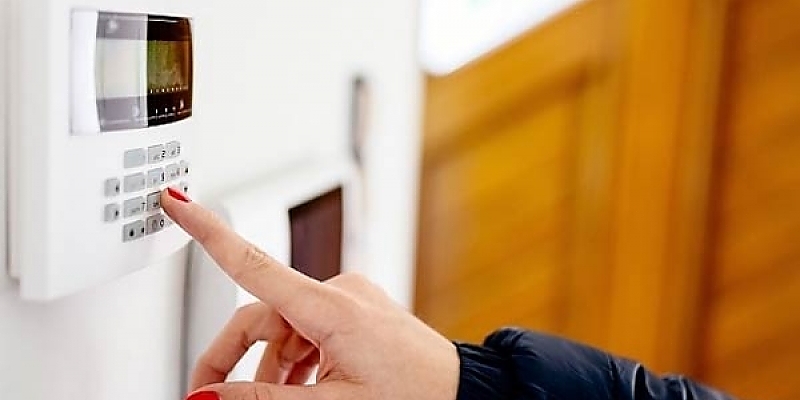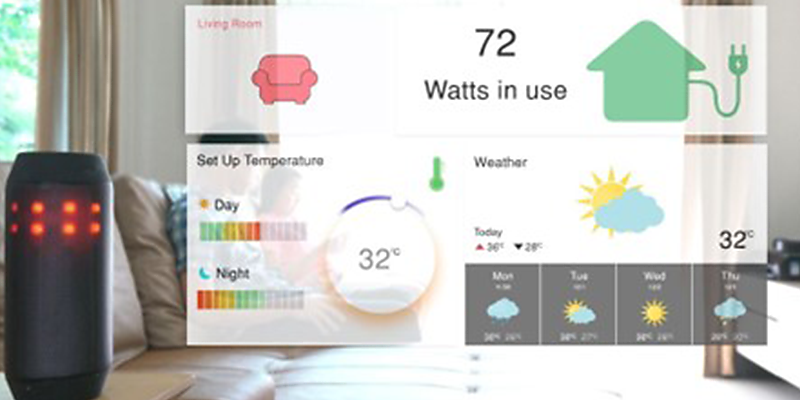By using our website, you agree to the use of cookies as described in our Cookie Policy
-
24 Hour Emergency Service
- 24 Hour Emergency Service
The Ultimate Guide: How Long Does a 9V Battery Last in a Smoke Detector?
Are you tired of constantly replacing the batteries in your smoke detector? Wondering how long a 9V battery really lasts in a smoke detector? Look no further – this ultimate guide has all the answers you've been searching for.
In this comprehensive article, we'll delve into the topic of battery life in smoke detectors and provide you with all the information you need to know. From the factors that can affect battery longevity to tips on prolonging battery life, we've got you covered.
By understanding how long a 9V battery typically lasts in a smoke detector, you'll be able to plan ahead and ensure the safety of your home and loved ones. Whether you're a homeowner, renter, or simply want to be prepared, this guide will equip you with the knowledge to make informed decisions about your smoke detector's maintenance.
So, grab a cup of coffee, sit back, and get ready to become an expert in battery longevity in smoke detectors. Let's dive in and discover the ultimate guide on how long a 9V battery lasts in a smoke detector.
Importance of battery life in smoke detectors
The battery life in smoke detectors is crucial for the safety and well-being of households. Smoke detectors are essential devices that can save lives by providing early warnings in the event of a fire. A smoke detector that is not functioning due to a dead battery is essentially useless, making it imperative that homeowners understand the importance of regularly monitoring and replacing the batteries. A reliable smoke detector can alert occupants to danger, allowing them to evacuate in a timely manner and call for help, potentially saving lives and minimizing property damage.
Moreover, the importance of battery life goes beyond mere functionality; it also relates to the peace of mind that comes with knowing your home is protected. Many people do not realize that the majority of smoke detector failures are linked to dead or improperly maintained batteries. This highlights the necessity for individuals to be proactive in ensuring their smoke detectors are always in optimal working condition. By understanding how long a 9V battery generally lasts, you can schedule routine checks and replacements to maintain continuous protection.
In addition to life safety, maintaining an effective smoke detector protects your property and investments. Homeowners and renters alike should prioritize battery life in their smoke detectors to avoid potential tragedies. Investing in the habit of regular battery replacements not only provides safety but also reinforces the importance of fire prevention strategies at home. Ultimately, a well-functioning smoke detector with a dependable battery can be the difference between a quick evacuation and a disaster.
Factors affecting the lifespan of a 9V battery in a smoke detector
The lifespan of a 9V battery in a smoke detector can be influenced by several factors, which can lead to variations in how long the battery will last. One of the primary factors is the type of battery used. Alkaline batteries are commonly used in smoke detectors and typically last about six months to a year, while lithium batteries may last significantly longer, sometimes up to ten years. It’s essential to choose the right type of battery for your smoke alarm to ensure optimal performance.
Another critical factor is the frequency of use of the smoke detector. If a smoke detector is frequently triggered, due to cooking or other common activities that might generate smoke, it can lead to a quicker depletion of the battery. Additionally, the age of the smoke detector itself plays a role; older models may consume more power or may not function as efficiently, leading to reduced battery life. Regular maintenance and testing can help identify if an older unit needs replacing to maintain safety standards.
Environmental conditions also significantly impact battery life. Extreme temperatures, high humidity, or exposure to dust and debris can all affect how well a battery performs in a smoke detector. Smoke detectors located in areas with fluctuating temperatures, such as near heaters or air conditioning units, may experience a shorter battery life. It's important to consider the placement of your smoke detector as part of your overall fire safety strategy; keeping it in an optimal environment can help extend battery life and ensure functionality.
Average lifespan of a 9V battery in a smoke detector
On average, a 9V battery in a smoke detector will last between six months to a year, depending on several factors. Alkaline batteries are the most common choice for smoke detectors, and these typically reach their capacity limit within that time frame. However, many manufacturers recommend replacing the battery at least once a year, regardless of whether the detector is still functioning properly. This precaution helps ensure that the smoke detector remains reliable and ready to alert you in case of a fire.
Furthermore, lithium batteries, which are becoming increasingly popular for smoke detectors, can offer a significantly longer lifespan. These batteries can last up to ten years in some smoke detector models, making them a more convenient option for homeowners who want to minimize the frequency of battery replacements. However, it's essential to remember that even with lithium batteries, the entire smoke detector unit should be replaced after ten years of use as the sensors can degrade over time.
Understanding the average lifespan of a 9V battery in smoke detectors is vital for effective home safety management. By knowing when to replace these batteries, you can proactively maintain your smoke detectors and ensure they remain in good working order. Regular inspections and timely battery replacements can help create a safer living environment for you and your family, ensuring that your smoke detectors are always ready to perform their critical life-saving functions.
Signs that a 9V battery needs to be replaced in a smoke detector
Recognizing the signs that a 9V battery in your smoke detector needs to be replaced is essential for maintaining home safety. One of the most common indicators is the chirping sound that many detectors emit when the battery is low. This sound is designed to alert homeowners that the battery is nearing its end and requires immediate attention. Ignoring this warning can lead to a non-functional smoke detector, which poses a significant risk to your safety.
Another sign that the battery may need replacing is when the smoke detector fails to respond during testing. Most smoke detectors have a test button that allows users to check the device’s functionality. If pressing this button does not trigger the alarm, it’s a clear indication that the battery may be dead or that the unit itself is malfunctioning. Regular testing should be part of your smoke detector maintenance routine to ensure everything is working as it should.
Additionally, if you notice that the smoke detector is taking longer than usual to respond when it detects smoke, this could also suggest that the battery is weak or that the detector is aging. While smoke detectors are designed to respond quickly to smoke, any delay in alerting can be critical in an emergency. It’s vital to remain vigilant and address these signs promptly to ensure the continued safety of your home and loved ones.
Tips to extend the battery life in a smoke detector
Extending the battery life of a smoke detector is not only beneficial for convenience but also plays a significant role in maintaining a safe home environment. One effective way to prolong battery life is to invest in high-quality batteries. Opting for reputable brands or lithium batteries can not only last longer but also provide more consistent power over time. While it may be tempting to choose cheaper alternatives, the potential savings could lead to greater risks if the smoke detector fails when needed most.
Another important tip is to keep your smoke detectors clean and free from dust and debris. Dust accumulation can interfere with the detector’s sensors, making them less efficient and potentially causing them to use more power. Regularly using a vacuum cleaner or a soft cloth to wipe down the detector can help maintain its functionality. Be sure to follow the manufacturer’s instructions on cleaning to avoid damaging the unit.
Lastly, consider the placement of your smoke detectors. Installing them in appropriate locations away from kitchens, bathrooms, and areas with excessive humidity can help reduce false alarms and unnecessary battery drain. Proper placement ensures that smoke detectors can function properly while minimizing the chances of frequent triggers that lead to battery depletion. By taking these steps, you can effectively extend the life of your smoke detector batteries and enhance the safety of your home.
Changing a 9V battery in a smoke detector - step by step guide
Changing a 9V battery in a smoke detector is a straightforward process that should be performed regularly to maintain functionality. Start by ensuring your safety; if your smoke detector is hardwired, it’s wise to turn off the power at the circuit breaker before proceeding. If it’s battery-operated, simply take it down from its mounting bracket. Most models will have a release tab that allows you to detach the unit easily.
Once the smoke detector is removed, locate the battery compartment. This is usually found on the back or side of the unit. Open the compartment carefully, making sure not to damage any components. Remove the old battery by gently pulling it out, making note of how the battery is oriented, as it’s crucial to insert the new battery in the same direction. Take the new 9V battery and place it in the compartment, ensuring the positive and negative terminals are aligned correctly.
After securing the new battery in its compartment, close it firmly and reattach the smoke detector to its mounting bracket. Once it’s back in place, test the unit by pressing the test button to ensure it’s functioning correctly. If everything is working as it should, turn the power back on if applicable, and you’re done! Regularly replacing the battery will help ensure your smoke detector remains a reliable line of defense against fire hazards in your home.
Testing the functionality of a smoke detector with a 9V battery
Testing the functionality of a smoke detector equipped with a 9V battery is a crucial part of home safety. It’s advisable to conduct these tests at least once a month to ensure that the detector is working correctly. To begin, locate the test button on the smoke detector, which is usually prominent and easy to find. Press the button firmly and hold it for a few seconds. A loud alarm should sound, indicating that the smoke detector is functioning properly.
If the alarm does not sound, this could indicate a problem with the battery or the smoke detector itself. In such cases, check to ensure that the battery is correctly installed and has power. If the battery is new and installed correctly but the alarm still does not sound, it may be time to replace the entire smoke detector unit, especially if it is older than ten years. Many detectors come with a date stamp that indicates when they were manufactured, making it easier to track their lifespan.
Additionally, during the testing phase, observe whether the alarm sounds consistently and loudly. A weak or muffled sound may suggest that the battery is low or that the unit is malfunctioning. Regular testing not only ensures your smoke detector is operational but also serves as a reminder to maintain your fire safety measures. By incorporating these checks into your monthly routine, you can proactively manage your home’s safety and ensure that your smoke detector is always ready to alert you in an emergency.
Common misconceptions about 9V batteries in smoke detectors
There are several misconceptions surrounding 9V batteries in smoke detectors that can lead to confusion and unsafe practices. One common myth is that all smoke detectors are the same and require the same type of battery. In reality, smoke detectors can vary significantly in terms of battery requirements, with some using lithium batteries that offer longer lifespans compared to standard alkaline batteries. This misconception can lead homeowners to choose the wrong type of battery, potentially compromising the functionality of their smoke detectors.
Another misconception is that once a smoke detector starts chirping, it can be left for some time before replacing the battery. Some individuals believe that the chirping is merely a nuisance, but it is actually a critical warning sign that the battery is low and needs immediate attention. Ignoring this signal can lead to a non-functional smoke detector when it is needed most, creating a dangerous situation in the event of a fire.
Lastly, many people assume that smoke detectors don’t require regular maintenance if they have been installed recently. However, even new detectors should be tested monthly and cleaned regularly to ensure optimal performance. Over time, dust and other debris can accumulate, affecting the detector’s ability to sense smoke accurately. Developing a consistent maintenance routine for smoke detectors, regardless of their age, is essential for ensuring your home remains protected.
Conclusion and final thoughts
In conclusion, understanding how long a 9V battery lasts in a smoke detector and the factors affecting its lifespan is fundamental to maintaining a safe home environment. By recognizing the importance of battery life and adhering to the best practices for battery maintenance, homeowners can ensure their smoke detectors remain reliable and effective. Regularly checking, testing, and replacing batteries are crucial steps in safeguarding your home and loved ones from potential fire hazards.
Additionally, being aware of the common misconceptions surrounding smoke detector batteries can empower individuals to take proactive measures for fire safety. The knowledge gained from this guide equips you with the tools necessary to make informed decisions about your smoke detector maintenance. From choosing the right battery type to understanding the signs of battery depletion, each piece of information contributes to a comprehensive safety strategy.
Ultimately, prioritizing the functionality of your smoke detectors through regular battery checks and timely replacements can make a significant difference in emergency situations. By implementing the tips provided in this guide, you can extend the life of your 9V batteries and reinforce the reliability of your smoke detectors. Remember, a well-maintained smoke detector is not just a device; it’s a vital part of your home’s defense against fire, and ensuring its readiness can mean the difference between safety and disaster.
To learn more about smoke detector safety, contact Secure IT Securities at 845-377-3001. We are ready to help you protect the ones that's by your side.
‹ Back














Comments